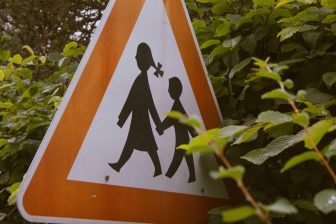
CitC Antwerp: Reflections on Sustainable Mobility
During the Child in the City International seminar in Antwerp, Sven De Visscher was the moderator of the Parallel Session on Sustainable Mobility. In this article, he provides a summary of the presentations and ideas shared.
Sven De Visscher is a lecturer at University College Ghent in Belgium and a member of Child in the City’s Scientific Program Committee (SPC).
Sustainable Mobility
This session explored the aspects of mobility related to creating sustainable child friendly cities. A lot of attention was given to modes of getting to and from schools with children. But we also learned about involving children in mapping and (re)discovering local trails in the city, and children’s experiences and autonomous mobility in some East London neighbourhoods.
Hanne Van Herck presented how she and her colleagues from the Flemish NGO Trage Wegen involve children in exploring, (re)discovering, mapping and maintaining local trail networks. Paths, trails, alleyways and back roads are key urban amenities, fostering the city’s accessibility and porosity. They enable citizens to explore, use and appropriate – both physically and symbolically – their surroundings. In addition, they have a special appeal for the city’s youngest citizens: unintended or inaccessible for car users, these spaces of going/being/connecting constitute an essential public network for the autonomous and safe mobility of children. The project “GMK – Gangmakers en Koplopers” (Pace-setters & Lead-runners) investigates these questions together with groups of 9 to 12 year olds. Main goal: to develop a participatory method that helps children of this age to discover, evaluate and improve the local network of paths.
Next, we had two presentations focusing more specifically on mobility around schools. Veronica Martinez talked about how The Parent´s Associations (AMPAS) of three public schools in Las Rozas, Madrid (Spain) launched a Camino Escolar (Safe Routes to School). And Maja Simoneti illustrated how the Slovenian Institute for Spatial Policies developed a participatory program of active travel to school that raised awareness about the importance of the way children travel to school, made more children walking and cycling to school and initiated careful planning of soft and hard measures to improve the safety and pleasantness of school paths and streets. Both presentations showed inspiring ways of breaking the detrimental circle of parents driving their children to school by car because they perceive the traffic situation around the school environment as too dangerous, but who as a consequence simultaneously reinforce this (perceived) dangerous traffic situation for other parents, who will in turn be more inclined to also drive their children to school. The implementation of ‘walking bus’ and ‘cycling train’ routes provides collective solutions for a more sustainable mobility around schools. A key success factor in both examples was the active involvement of children and parents.
The final talk by Holly Weir shifted the scope to children’s autonomous mobility in East London neighbourhoods and discussed how this is affected by different social and cultural factors. Her research illustrated that children’s experiences of crime and the fear that this creates affect how they use their neighbourhoods and the freedoms given to them within that space. Building neighbourhoods that provide opportunities for children to be mobile may not be enough to see an increase in actual mobility. Her research opened up the discussion about the very diverse experiences of children and the diverse shared norms, values and beliefs of their parents about using public space.




